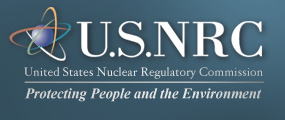Resolution of Generic Safety Issues: Issue 73: Detached Thermal Sleeves (Rev. 3) ( NUREG-0933, Main Report with Supplements 1–35 )
DESCRIPTION
Historical Background
During the period 1978 to 1980, there were reports of fatigue failure of thermal sleeve assemblies in the piping systems of both PWRs and BWRs. The BWR problem was addressed by GE in NEDO-21821 and was resolved with a staff SER13l4 and the publication of NUREG-0619.742 Fatigue problems occurred subsequently in 1982 in PWRs designed by B&W and W. IE Information Notices No. 82-0913ll and No. 82-3013l2 were issued by the staff to address the problems at B&W and W reactors, respectively. Status reports on the B&W pipe cracking problem were contained in SECY-82-18613l3 and SECY-82-186A513 which described the problem of thermal sleeve cracking in the normal make-up/high pressure injection nozzles of four B&W plants. No notable events were reported at PWRs designed by CE.
As a result of the fatigue failures in B&W reactors, a B&W Owners' Group Task Force was established to identify the cause of the failure and to recommend modifications to eliminate future failures. This Task Force submitted a report514 to the NRC and the concern was resolved in Issue 69, "Make-up Nozzle Cracking in B&W Plants."
The concern regarding thermal sleeves in W-designed plants was raised by the staff518 following remote video inspections that revealed pieces of metal at the bottom of a W reactor vessel at the Trojan Nuclear Plant; a metal fragment was also found between the lower core plate and the core support plate. All metal pieces were subsequently identified as part of the thermal sleeves initially installed in the safety injection accumulator piping nozzle connections to the reactor coolant system cold leg piping. Confirmation that the 10-inch thermal sleeves were missing from the four safety injection piping nozzle connections was obtained shortly thereafter. In response to the Trojan cracking and detachment of thermal sleeves, a plant-specific review was conducted and an SER13l5 was completed by the staff. In this SER, the staff established the basis for continued operation of the Trojan plant, subject to the findings of a staff generic study on W plants.
There have been five generations (O through 4) of thermal sleeves used in W reactors. Only "Generation 3" thermal sleeves have been found to be susceptible to high-cycle stresses due to flow-induced vibrations because of the particular weld attachments used in that design. The vibrations caused fatigue failures at the thermal sleeve attachment welds and subsequent cracking and tearing away of the thermal sleeves resulted in the formation of loose parts moving into the reactor vessel. This issue was applicable to the design and operation of approximately 20 W plants that used Generation 3 thermal sleeves.
Safety Significance
The safety significance of loose parts in the vessel was the potential for flow blockage and/or cladding wear or destruction by parts wedged within the fuel assemblies. In addition, if the thermal sleeves become detached at a plant, or are removed and not replaced, there is an ancillary concern that the nozzle cumulative usage factor may be exceeded during the remaining lifetime of the plant.
Possible Solution
After an evaluation of the thermal sleeve problems at several W plants, the staff concluded13l6 that licensees could elect to either retain the Generation 3 thermal sleeves or remove them. If the decision was to retain the sleeves, licensees would have to develop a program to inspect the attachment welds of these sleeves at each refueling outage. If licensees elected to remove the Generation 3 thermal sleeves, they would have to submit revised TS to monitor the injection flow transients which occur at the affected nozzles and evaluate the cumulative fatigue usage factors.
CONCLUSION
This issue was resolved for BWRs with the publication of NUREG-0619.742 For B&W reactors, the issue was resolved in Issue 69; no problems were reported at CE reactors. For W reactors, a proposed resolution was identified13l6 and pursued.
In resolving the issue at those plants with W reactors, the staff found that licensee implementation of the measures identified by the staff in 1983 adequately addressed the safety concern. With the exception of two plants, all affected plants had made commitments to implement the staff's resolution. The staff's technical findings were documented in NUREG/CR-6010.1445 Thus, this issue was RESOLVED and requirements were established.1446 In an RES evaluation,1564 it was concluded that consideration of a 20-year license renewal period did not affect the resolution.
REFERENCES
|


